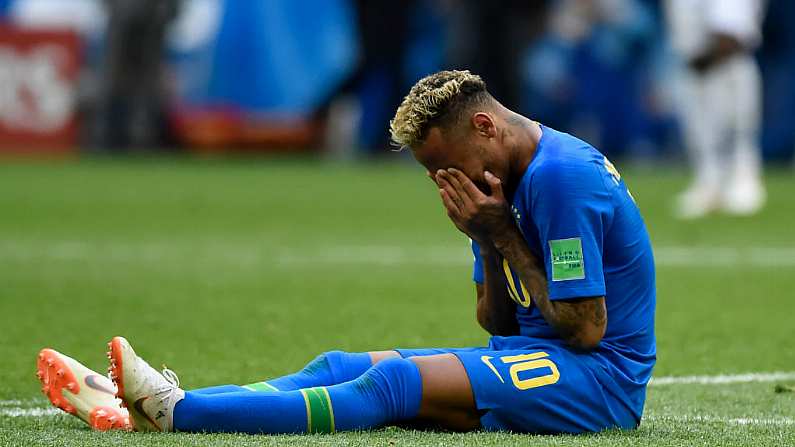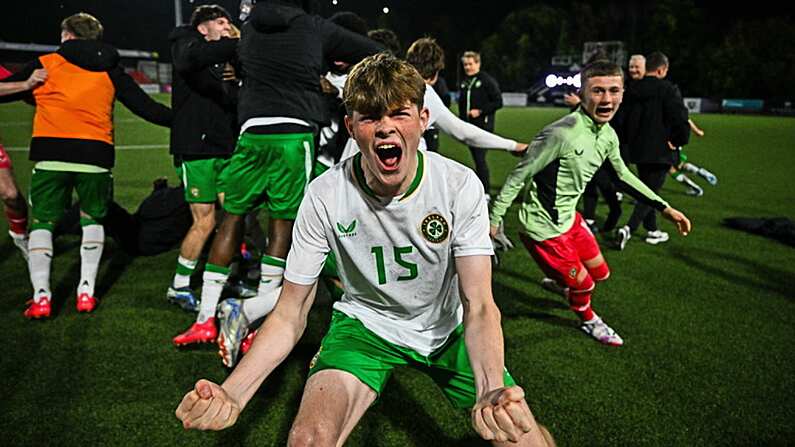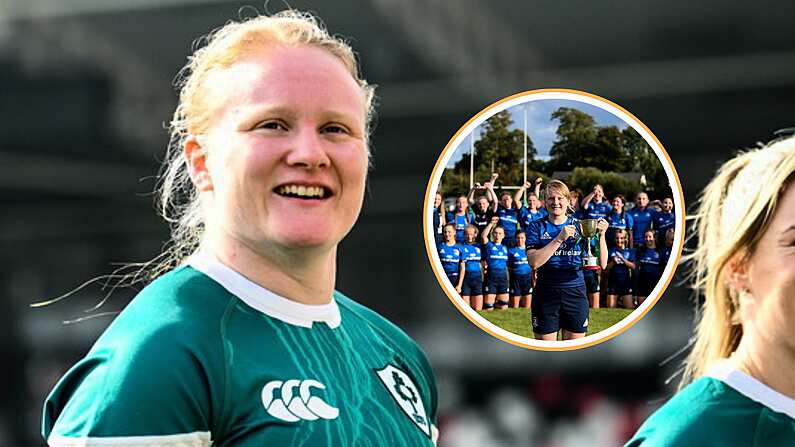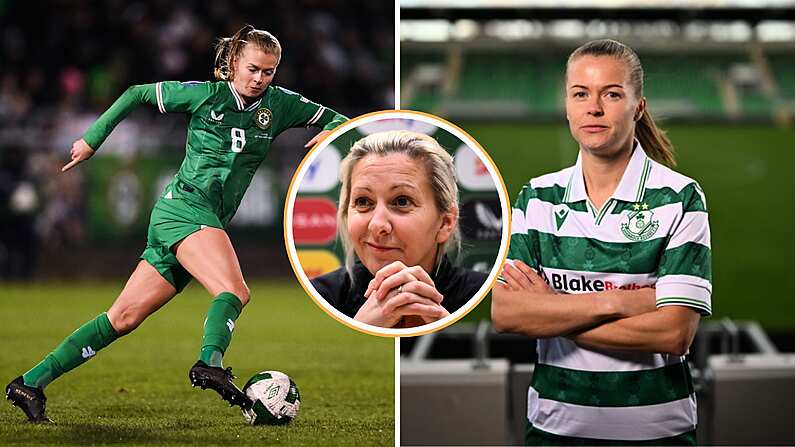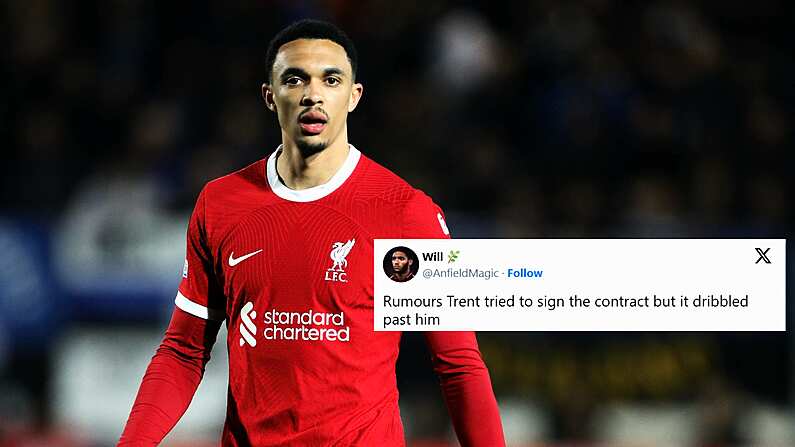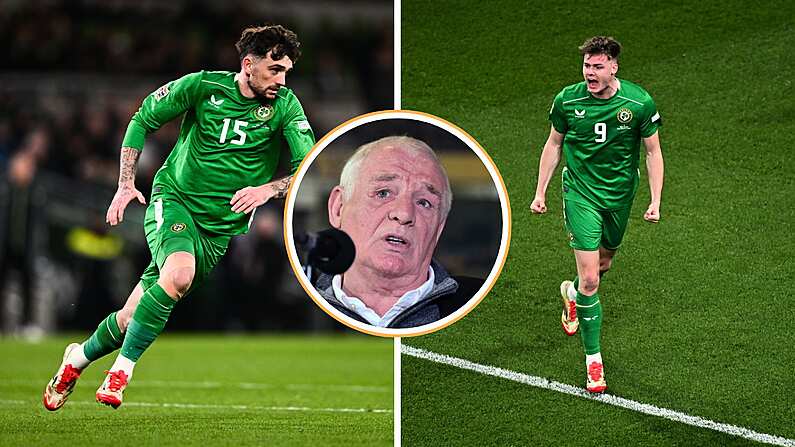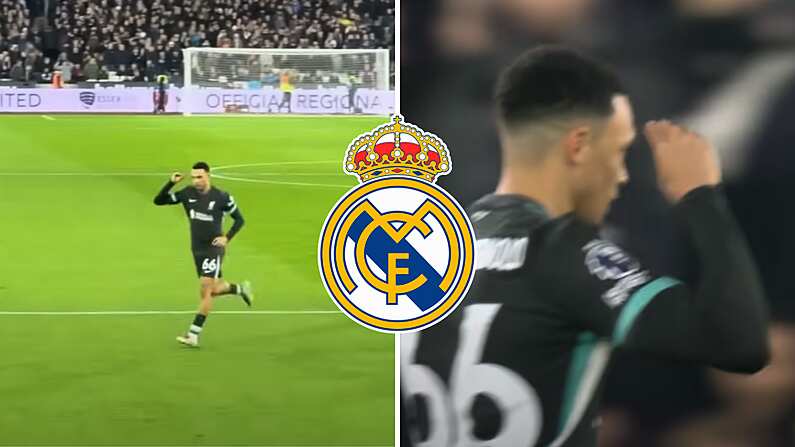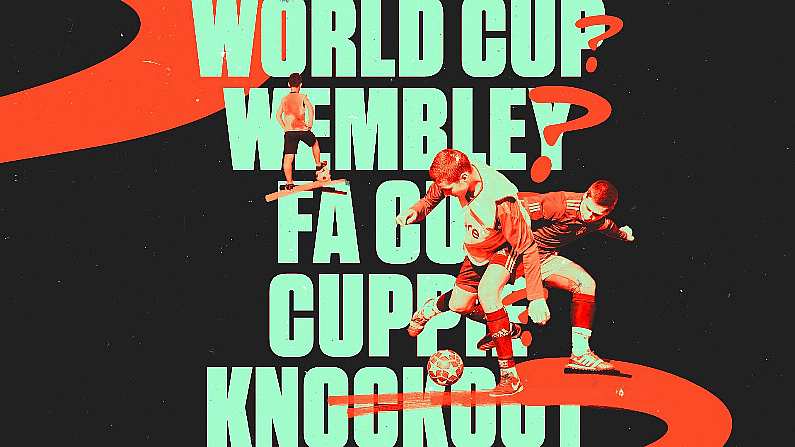In some way or another, every football game is about resolving the tension between indulging individual talent and sacrificing it in the name of the collective.
Rarely has a game fit so snugly into that truth as Liverpool vs PSG, and at the end, the camera lingered on the forlorn figure of this parable's cautionary character: Neymar Junior.
Professionally, the last twelve months have been a disaster for Neymar. He left Barcelona to step out of a long shadow and fulfill some World Cup dreams and has since stumbled home from Russia into another's shade, courting scorn and launching memes.
As Neymar dawdled about Anfield on Tuesday night, not so much surprised by Liverpool's vigour as completely disinterested in it, it was easy to point and laugh.
It may even feel righteous to do so, given that Neymar is the game's most thorough image of its own excesses.
His club is decadent too. Thomas Tuchel took a wallet to a gunfight at Anfield on Tuesday night and unsurprisingly lost: the club have had to sell genuine midfielders like Blaise Matuidi and Giovani Lo Celso to hang onto Neymar and M'bappé, so their engine room at Anfield was made up of a winger (Di Maria), a defender (Marquinhos) and a South William Street barista (Adrien Rabiot).
Neymar did not track back and contributed nothing when PSG didn't have the ball, and even his one flash of brilliance in possession was rendered meaningless by Liverpool's superior resolve.
He has become a preposterous figure, and instead of seeing Peak Neymar, we have reached Peak Indulgence.
But is it all his fault? Or is this just the natural end-point for football's first equivalent to a Holywood child actor?
******
When Barcelona cavorted about Berlin with the European Cup at the end of a stunning, treble-winning season in 2015, the man wrapped in the 100% Jesus headband seemed to have followed the perfect career path.
Neymar had turned down Real Madrid when he was 13 in order to come through the ranks at Santos and in 2010 rejected a move to Chelsea.
He was hailed by many as a patriot for doing so: the Brazilian league has been denuded by its international stars leaving for Europe at a young age, whereas here was the most precocious of the lot willing to stay on beyond his teenage years.
Santos had to make him rich to keep him there, but they also gave him something else: more power.
We say 'more' power as Neymar was already influential at the club, and was so even before he made his first-team debut in 2009.
To understand the full story of Neymar Jr you need to know of Neymar Snr and as the former's career has developed, both have melded into Neymar Ltd.
Their relationship is the subject of what it is optimistically billed as Neymar's 2013 autobiography, Neymar: Conversations with my Father. It is a faintly ridiculous book, and is less a book than it is a heavily focus-grouped marketing pamphlet. Neymar and his Dad take turns telling chapters, and most of it is spent politely praising each other.
"My father is so much more than a manager, an agent or an advisor. His love and support have been central to all my achievements", says Neymar; "My precious jewel" rhapsodies Neymar Snr.
It is also deeply unclear as to whether it's actually Junior's voice throughout. Even allowing for translation, phrases like "I love telling jokes, and I know a lot of good ones" and "One of my great pleasures is to ride my bike along Santos' shore" makes it sound like the book is less about the cover star of FIFA 19 than one of the most prodigious Penny Farthing racers of Victorian Britain.
Nonetheless, the book isn't entirely without merit, as it lays bare the extent to which Neymar's childhood was carefully calibrated for his success as a footballer.
Neymar Snr was a footballer but never fulfilled his talent after contracting tuberculosis. When his son's talent became clear, he was determined not to leave a second talent in the home unrealised.
He worked multiple jobs in order to make it happen, and while the family grew from poverty - Neymar, his sister, and his parents all shared the same room in his grandparents' house - everything was provided for Junior to succeed.
His father also took evening classes in PE so as to be the best possible coach he could be for his son, and would give Neymar tapes of each of his performances to review and improve. Everything was focused on Neymar Jnr, to the point that Neymar Snr uses the book to thank his daughter for dealing well with her brother's success and fame.
Where Neymar Snr truly distinguished himself, however, was when it came to negotiations. When Santos finally manacled Neymar Jnr to a contract, they had to make a number of concessions to the family. They founded an under-13 team to give Neymar a team to play in, and had to give manager Betinho a fuel allowance as it was he who was driving Neymar to training.
It is wrong to say that Neymar hasn't had to work hard to get to where he is, but he hasn't met with the kind of adversity many of his elite peers have on their way to the summit of the game.
For Neymar, the twin realities of his talent and the environment around him made his arriving at the top of the game the natural conclusion of hard work, but he did not face the capricious life of the young footballer forced to leave home and take the first cheque dangled by a European club.
Neymar's decision to stay in Brazil until 2013 made him a hugely marketable star in Brazil and did a service to the domestic league.
At Santos, however, Neymar was cosseted in an environment which undermined the notion of personal responsibility in a collective environment.
As Santos begged their greatest talent to turn down a move to Chelsea in 2010, the Santos president supposedly dimmed the lights and gestured toward a vacant chair in the boardroom. Here's how Dad recounts what he was told.
This chair belongs to the nation’s greatest sporting hero. Since Ayrton Senna’s death, this chair has been vacant. If Neymar Jr turns down Chelsea’s offer, he will have take his first step to sitting there.
If that was false flattery, what followed a month later was a tangible indulgence.
With Santos 3-2 up in a game against Atletico Goianense, they won a penalty. Neymar wanted to take it, but having missed his last three spot-kicks, manager Dorival Junior insisted that another player, Marcel, take the penalty. Neymar threw an on-field strop that erupted into a dressing room row with captain Edu Dracena.
When things settled, Dorival Junior proposed a 15-day suspension for his tantrum-throwing teenager. That would mean Neymar missing the next game, which happened to be a clash with great rivals Corinthians. Extraordinarily, the Santos directors were so keen for Neymar to play in that game, they fired the manager. Consequently, Neymar played and scored a penalty....in a game Santos lost 3-2.
*****
Eventually, Neymar took his leave for Barcelona, and in becoming an integral part of Luis Enrique's dazzling Barcelona by 2015, it seemed as if the plan had worked to perfection.
What might have been seen as an excessive, comfortable stay at home was now viewed upon as a brave maturing process and a deep trust that Neymar's talent was such that he could make an instant impact at the highest level rather than be lost in loan spells as so many of his international teammates had.
So why PSG?
Neymar was undoubtedly brilliant at Barcelona, and his performance in the 6-1 comeback against PSG was one of the greatest by an individual in the history of the competition
How did he come to trade it all for the empty shambles we saw at Anfield on Tuesday?
Money was certainly among the reasons, and Neymar's father seems to hold the anxiety about money and the future that many ex-pros do.
The main motivation, it seems, is to win the Ballon D'Or.
While Conversations with my Father is full of assuring bromides that Neymar is committed to winning trophies and what is best for the team, there are a few tell-tale signs that the other kind of awards most motivates at least one partner in Neymar Ltd.
It seems instructive that the book opens with a scene at a Brazilian training session with Neymar Snr in attendance, at which the only player identified is Kaka, described as the 'last Brazilian player to win the Ballon D'Or'.
Elsewhere in the book, Neymar Jnr strikes you as not overly concerned with collective awards...
I am forgetful of trophies. I left the one I received at the London 2012 Olympics in my hotel room. And I left the Copa America after him in Argentina. It may sound careless, but in many ways it is because they are the trappings of my job, not my main focus.
...while the list of Neymar's achievements at the back of the book shows an incredible recall for individual gongs such as Premio Ginga Esporte Interativo's 'Best goal of 2011' and his selection in El Pais' South American Dream Team for 2012.
A focus on individual awards is perfectly fine, and such an attitude has prodded an iconic career from Cristiano Ronaldo, but somewhere along the line, Neymar lost the balance between the individual and the collective.
Neymar has rarely had to rely on others for his career to succeed, so perhaps it is understandable that he would misunderstand the importance of a functioning, collective team.
Without it, however, he will never win the Ballon D'Or; to coruscate individually is to surrender at least part of yourself to a more successful collective, and that is something Neymar has left in Spain but not found in Paris.
PSG are replicating the worst indulgences of the Santos' experience, but doing so on a much larger scale.
Is it any wonder a man who has had personal responsibility taken from him for most of his career is not sprinting after Trent Alexander-Arnold?
At the moment, he is fading as an elite footballer and is becoming another famous man living in Paris; a useful model for PSGs "lifestyle brand".
But when humans are reduced to little other than celebrity, they cease becoming a factor in the present moment to everyone else, and instead exist in the past or the future: as a selfie that will garner hundreds of likes; an encounter that will be told to friends; as a name on the back of a new shirt; fuel for another caustic, numbers-spinning meme.
On the pitch, Neymar spends much of his time as an image in the future too, refusing to track back as it is at odds with the vision he has of himself off the pitch and in the future.
Jurgen Klopp, the architect of Neymar's antithesis on Tuesday night, once said that "[Living in the present is] the only way to influence the future. If you always live in the future, and hope something happens in the future, you forget that you have to change in the future".
Neymar needs to start thinking of the future by straying from his past and tackling the present moment.
It's time to take inspiration from the better side of the parable and start thinking about the collective.

